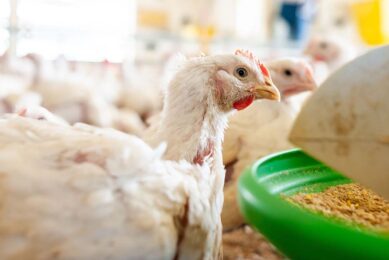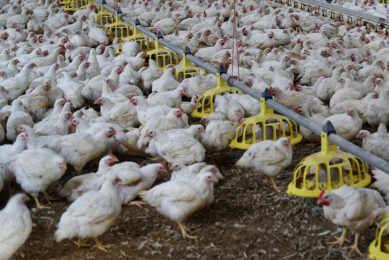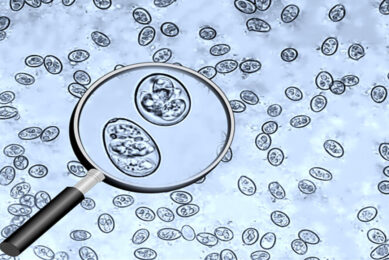Well-managed watering system in poultry house promotes health

The European Union has banned the use of antibiotics as growth promoters, and that idea appears to be catching on in other parts of the world. To comply, farmers must find alternative methods to promote bird health, such as managing the watering system to create as hygienic an environment as possible in the poultry house.
Providing a healthier environment can decrease the incidence of intestinal diseases like necrotic enteritis and coccidiosis. Both diseases are endemic to poultry operations, and experts estimate necrotic enteritis costs the global poultry industry $2 billion annually. When birds are healthy, they use the nutrients they ingest for growth. If they are suffering from infection, they must use those nutrients to fight the disease.
Necrotic enteritis
Necrotic enteritis results from the proliferation of the bacterium Clostridium perfringens in the intestines. Most chickens have these bacteria in their guts, but they usually are in the lower intestines and caeca and do not pose a problem. A triggering factor, such as coccidiosis, is necessary for the bacteria to proliferate to the point where they migrate to the upper intestines and cause harm to the birds.
A poorly managed watering system can result in biofilm in the pipes and wet litter. Both conditions can cause a poultry flock to become infected with necrotic enteritis or other intestinal diseases.
Bacteria
Biofilm results when bacteria in the water become attached to the walls of the pipe. Regardless of how the water is sanitised, some bacteria will remain. The bacteria begin to exude a sticky substance after attaching to the pipe walls, creating a biofilm. This attracts additional bacteria and within a matter of days, the watering system has an active colony of pathogens. Eventually, portions of the biofilm can break off and either clog the drinkers, causing them to leak, or supply bacteria to the birds in their drinking water.
The best way to combat biofilm is flushing the water lines regularly with high pressure. Ziggity recommends flushing the lines in combination with a hydrogen peroxide-based cleaner. Properly formulated, hydrogen peroxide becomes a powerful oxidizing agent that scrubs the interior of the pipe and drinker clean of biofilm.
While chlorine is very effective at killing certain bacteria, chlorine alone will not keep your water lines clean. Research shows that bacteria entrenched in a biofilm are much more resilient to chlorine than free-floating bacteria.
Wet litter
Wet litter poses a very definite danger to poultry flocks. The first danger from wet litter is ammonia release. Besides the unpleasant smell, the ammonia can harm the birds’ respiratory tracts and greatly reduces the immune response. This makes the birds more susceptible to other diseases. Wet litter also can promote the growth of pathogens that can harm the birds. This is especially true of coccidiosis, which so often is the trigger event for Clostridium perfringens proliferation.
Ideally, farmers should strive for friable litter — litter with a moisture content of about 20 to 25 percent. A simple test to determine if litter is friable is to grab a handful and squeeze. If the litter clumps briefly and then crumbles apart, it has the correct moisture content. If it won’t clump at all, it is too dry and will create dusty conditions in the poultry house. If it remains clumped together, it is too wet.
Hygienic poultry house
Researchers are seeking a variety of methods to replace the use of antibiotics in poultry flocks, including vaccines, anticoccidials and probiotics. However, keeping the poultry house environment as hygienic as possible through proper management of the watering system can help maintain intestinal integrity in your flocks with or without antibiotics.
Source: Ziggity Systems
Join 31,000+ subscribers
Subscribe to our newsletter to stay updated about all the need-to-know content in the poultry sector, three times a week. Beheer
Beheer








 WP Admin
WP Admin  Bewerk bericht
Bewerk bericht